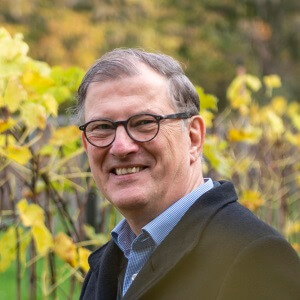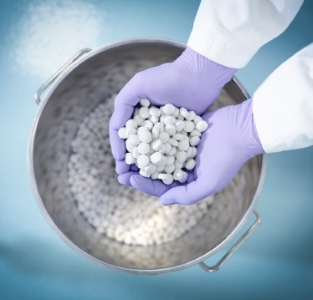Ceradis

Ceradis has a sustainable mission: to enable farmers to produce food in a way that is safer for people and better for the environment. The company develops biological alternatives to protect crops. For years, V.O. has been the strategic partner in building their patent portfolio that is critical to their commercial success.
Traditionally, mostly synthetic pesticides are used to control diseases or pests in plants. Ceradis develops alternative pesticides of biological or natural origin or ways to reduce the use of synthetic pesticides. The company originated as a spin-off from research institute Plant Research International (PRI) of Wageningen University & Research (WUR) and now has about 30 employees.
Founder and IP manager of Ceradis is biologist Wim van der Krieken: “We are constantly looking for new, environmentally friendly solutions that are more effective. In doing so, we are already contributing to the Green Deal for the agricultural sector. Its goal is to reduce the amount of chemicals in crop protection by 50% in 2030.”

‘V.O. speaks our language and understands our business.’
Wim van der Krieken – Ceradis
Nature as the basis
Natural products such as sulfur, phosphite and natamycin, are the basis for the products Ceradis makes. Elemental sulfur is one of the oldest fungicides. Among other things, it is used in grape growing to control white disease on leaves, also known as powdery mildew. In the product CeraSulfur®, Ceradis uses bio-sulfur. This is obtained from agricultural waste streams through a bacterial desulfurization process. This not only makes the agent biological and circular, it works even better than conventional elemental sulfur.
Novelty not easy to prove
Finding a unique active, biological substance is the daily work of the phytopathologists (plant pathologists) and chemists in Ceradis’ lab. The team sets high standards for this. With the search, Ceradis wants to find an alternative that is more effective than the conventional product. The innovation team therefore always compares the alternative with a product that is leading in the market. Patent manager – and originally a phytopathologist – Emilie Van Dijk-Fradin is the link between internal research and the registration and protection of new inventions. “There are strict rules for the registration and authorization of (bio)plant protection products. That process can take an average of seven years in Europe. With many large competitors around us, it is crucial to build up a patent position,” says Van Dijk-Fradin.
Proving novelty, especially for crop protection products, is essential for filing a patent. Frits Michiels, patent attorney at V.O.: “Especially when using raw natural ingredients, which thus already exist, proving the novelty of an invention is not easy. It is important to precisely describe the synergy between different substances in order to obtain a patent.”
Patent portfolio is the foundation for success
For Ceradis, V.O. is a partner that is involved in product development at an early stage. Van der Krieken: “They help us to understand the prior art of patents and always advise us adequately on the strategy to follow. My experience is that V.O. understands our business well and is always reachable for us. Half a word is enough for us.” That experience is mutual. Michiels of V.O.: “By frequently discussing ideas with each other, we are ultimately able to formulate the patent application distinctively and more sharply. And because I’ve also been in a lab as a biologist, we speak the same language.” A strong patent portfolio is critical to the protection and commercial success of Ceradis’ brands. Van der Krieken: “Without a patent portfolio, we would never have been in the picture with major partners selling our product under license.”


